
The positive finding on the secondary end point of 6-month confirmed disability worsening supports the data from the phase 3 HERCULES trial in secondary progressive multiple sclerosis.

The positive finding on the secondary end point of 6-month confirmed disability worsening supports the data from the phase 3 HERCULES trial in secondary progressive multiple sclerosis.

The associate professor of neurology at Harvard Medical School discussed a study presented at ECTRIMS 2024 that compared the effectiveness and safety profiles of FDA-approved NMOSD therapies with other commonly used treatments. [WATCH TIME: 4 minutes]
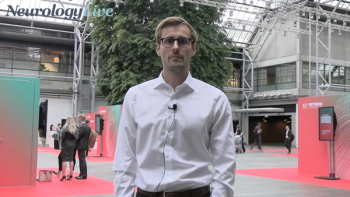
The neurology resident at the University Hospital Frankfurt in Germany talked about a study presented at ECTRIMS 2024 that analyzed time delays in initiating high-efficacy treatments in patients with multiple sclerosis. [WATCH TIME: 4 minutes]
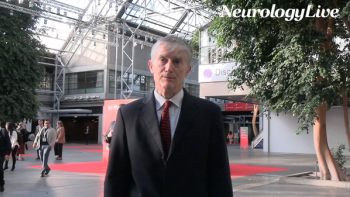
The codirector of the Precision Medicine MS Center at Johns Hopkins University discussed the new updates to the MS diagnostic criteria presented at the 40th ECTRIMS Congress in Copenhagen. [WATCH TIME: 5 minutes]

Data from the MAGNIFY-MS study suggest that low 24-month PIRA rates across age groups and among those with or without treatment experience.

The data showed only a small number of infusion-related reactions among patients with MS transitioning from other disease-modifying therapies.

The 2-year study highlighted the potential of cladribine to promote remyelination in highly active relapsing-remitting MS, particularly when early disease control is achieved.

A large-scale study presented at ECTRIMS 2024, conducted by the Alliance for Research in Hispanic MS Consortium, identified ancestry-specific genetic factors that influence the risk of developing multiple sclerosis.

Based on findings from the study, investigators stressed the need for better streamlined access to high-efficacy therapies for pediatric patients with onset multiple sclerosis.
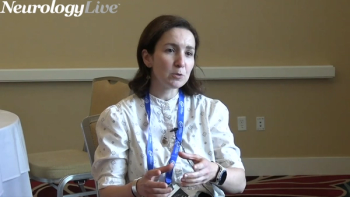
The principal investigator at Seattle Children’s Research Institute provided commentary on the therapeutic potential and hypothesis behind targeting mTOR pathway hyperactivation using pharmacological inhibitors. [WATCH TIME: 3 minutes]
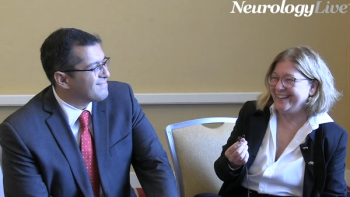
A pair of neurologists from the University of California, Irvine, provided commentary on the ways to help young investigators find their footing in research settings, and exposing them to opportunities major governmental agencies can provide. [WATCH TIME: 4 minutes]

The general neurologist at Brigham and Women’s Hospital described the approach and mindset in teaching neurology as the field continuously evolves. [WATCH TIME: 3 minutes]

At the 2024 AUPN Annual Meeting, a pair of neurologists provided perspectives on the attributes and ethics that make a great educator, stressing passion, intellectual humility, and inclusivity, among others. [WATCH TIME: 5 minutes]

The disease area stronghold leader in neurodegeneration at Johnson & Johnson provided insight on the importance of the Global Neurodegeneration Proteomics Consortium, illustrated in several presentations at the recently concluded AAIC 2024. [WATCH TIME: 7 minutes]

A group of clinician researchers at NYU Langone provided insight on a study presented at AAIC 2024 looking at the correlations between quantitative gait measures and Alzheimer disease biomarkers. [WATCH TIME: 4 minutes]

The medical director of the Toronto Memory Program at the University of Toronto provided an in-depth overview of results from an ongoing phase 1 study assessing mivelsiran as a treatment for patients with early-stage Alzheimer disease. [WATCH TIME: 8 minutes]

The chairman and chief executive officer at Biomed discussed the additive benefits of combination therapy for Alzheimer disease, providing context on the strengths of different drugs and how it might lead to a more precision medicine approach. [WATCH TIME: 6 minutes]

Steve Herne, chief commercial officer at Unlearn, provided context on a recently conducted study assessing the company’s digital twin methodology AI tool to enhance the statistical certainty of Alzheimer trials.

Mind Moments®, a podcast from NeurologyLive®, brings you an exclusive interview with Sharon Cohen, MD. [LISTEN TIME: 20 minutes]

The medical director of the Toronto Memory Program at the University of Toronto gave clinical perspective on the promise of mivelsiran, an investigational RNA interference therapeutic, and the idea behind using RNA therapies to treat Alzheimer disease. [WATCH TIME: 5 minutes]
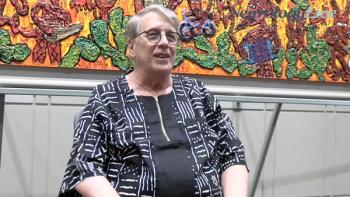
The professor of human genetics at the University of Miami discussed the significance of various genetic factors in Alzheimer risk and highlighted ongoing research, therapeutic challenges as well as the need for global collaboration. [WATCH TIME: 10 minutes]

The chief medical officer and head of Research & Development at Cognition Therapeutics discussed data from the phase 2 proof-of-concept SHINE study assessing CT1812, a small molecule oligomer antagonist, in early-stage Alzheimer disease.

The professor of human genetics at the University of Miami talked about the Alzheimer's Disease Sequencing Project which aims to provide diverse genetic data to identify therapeutic targets for Alzheimer disease. [WATCH TIME: 10 minutes]

The chairman and chief executive officer at Biomed provided insight on the hypothesis behind a new phase 3 study assessing NA-831, an agent with neurogenesis effects, with lecanemab, a previously approved drug for Alzheimer disease. [WATCH TIME: 7 minutes]
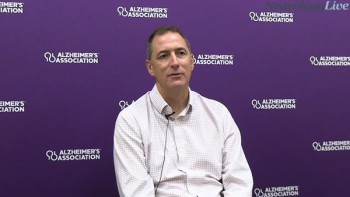
The professor of neurology and Diana Davis Spencer Foundation Chair at the Jackson Laboratory discussed the emerging importance of microglia in the context of Alzheimer disease research and its potential implications for clinical trials. [WATCH TIME: 4 minutes]

The director of the Cleveland Lou Ruvo Center for Brain Health at Cleveland Clinic discussed new diagnostic techniques that show promise for advancing the understanding of brain pathologies like Alzheimer and Lewy Body diseases. [WATCH TIME: 3 minutes]

The director of the Cleveland Lou Ruvo Center for Brain Health at Cleveland Clinic talked about challenges of accurately diagnosing dementia with Lewy bodies as well as new methods that show promise in guiding treatment. [WATCH TIME: 3 minutes]

The CEO and cofounder at Advanced Brain Monitoring talked about a study presented at AAIC 2024 that explored the use of EEG biomarkers to differentiate between Alzheimer disease and frontotemporal dementia.

The CEO and cofounder at Advanced Brain Monitoring talked about how the early diagnosis of frontotemporal dementia is often mistaken for Alzheimer disease, but advancements in neuropsychological assessments and biomarker identification may improve accuracy. [WATCH TIME: 4 minutes]

The CEO and cofounder at Advanced Brain Monitoring discussed using EEG-based biomarkers to identify early markers that predict cognitive decline and aid in differential diagnosis for neurodegenerative diseases. [WATCH TIME: 4 minutes]